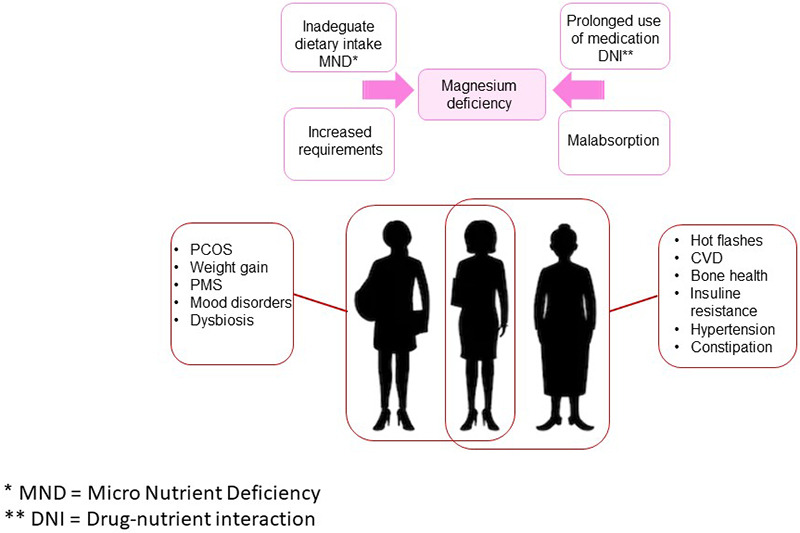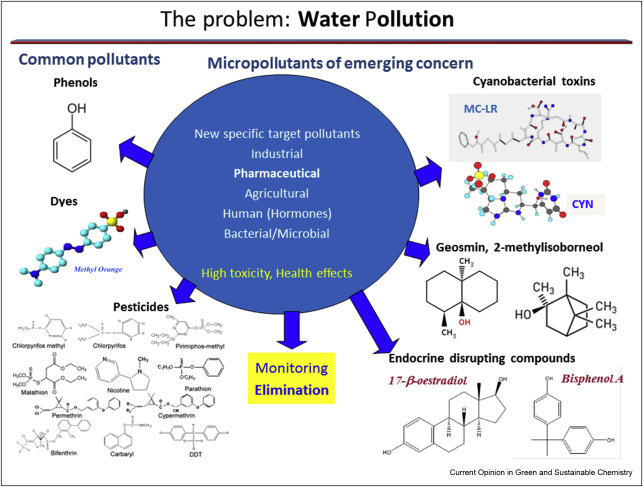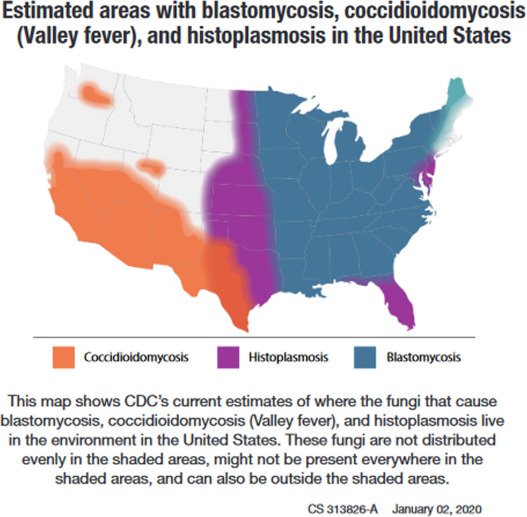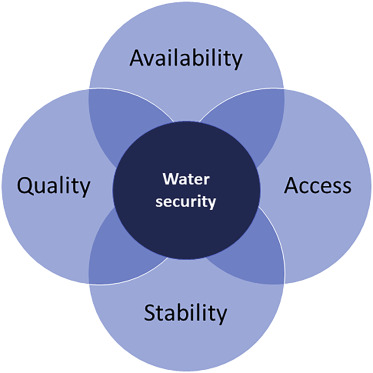Background: Genomic medicine has led to significant advancements in the prevention and treatment of cancer. The National Comprehensive Cancer Network (NCCN) guidelines recommend BRCA1/2 screening in high-risk individuals; however, the guidelines have not incorporated differences within ethnic cohorts beyond Ashkenazi Jewish ethnicity. We analyzed the prevalence of BRCA1/2 mutations in various ethnicities and identified high-risk personal characteristics and family history incorporating differences within ethnic cohorts beyond Ashkenazi Jewish ethnicity.
Magnesium is one of the most important micronutrients for the human body, is involved in many physiological pathways and is essential for the maintenance of normal cell and organ function. Magnesium deficiency in healthy individuals on a balanced diet is quite rare, but needs may change over the course of life. In women, in particular, there are various physiopathological conditions that may increase magnesium requirements, useful for both disease prevention and treatment. Indeed magnesium is well recognized in obstetrics and gynecology area.
United States and South Korean citizens’ interpretation and assessment of COVID-19 quantitative data
We investigate United States and South Korean citizens’ mathematical schemes and how these schemes supported or hindered their attempts to assess the severity of COVID-19. We selected web and media-based COVID-19 data representations that we hypothesized citizens would interpret differently depending on their mathematical schemes. We included items that we conjectured would be easier or more difficult to interpret with schemes that prior research had reported were more or less productive, respectively.
Children with disabilities in Ontario, Canada have their right to equal access to education protected by the 1990 Ontario Human Rights Code and the 1990 Education Act. These legislated rights require the delivery of stigma- and barrier-free education services to children with disabilities. However, the extent to which compliance is achieved by school boards and individual schools is questionable and warrants attention as a matter of both scholarship and public policy.
This Comment article supports SDG 3 and 10 by underscoring the need to address systemic racism in order to achieve health equity, and emphasising the need to develop more nuanced metrics to more broadly document and measure the extent and impact of systemic racism on the health of affected communities.
This Comment describes how systematic biases in data linkage misestimate health needs for ethnic minorities and further entrench existing disadvantages.
Pharmaceuticals are an important group of potential EDCs (endocryne disrupting compounds) in groundwater and surface water. Photocatalytic degradation of pharmaceuticals and organic contaminants is described for nanotubular structures.
Provides an overview of the diversity of fungal infections and the associated syndromes that afflict cancer patients as they undergo increasingly complex treatments. Invasive fungal infections cause significant morbidity and mortality in oncology patients. Supports SDG 2: Goal 2. End hunger, achieve food security and improved nutrition and promote sustainable agriculture
Reviews and explains the challenges posed by mycotoxins on food safety, which have consequences on the health of consumers and livestock. Also discusses the prospects of mycotoxin outbreaks in a world climate change scenario. Supports SDG 2: Goal 2. End hunger, achieve food security and improved nutrition and promote sustainable agriculture
This review article examines observed and projected climate change impacts on water security across the world's drylands to the year 2100.




